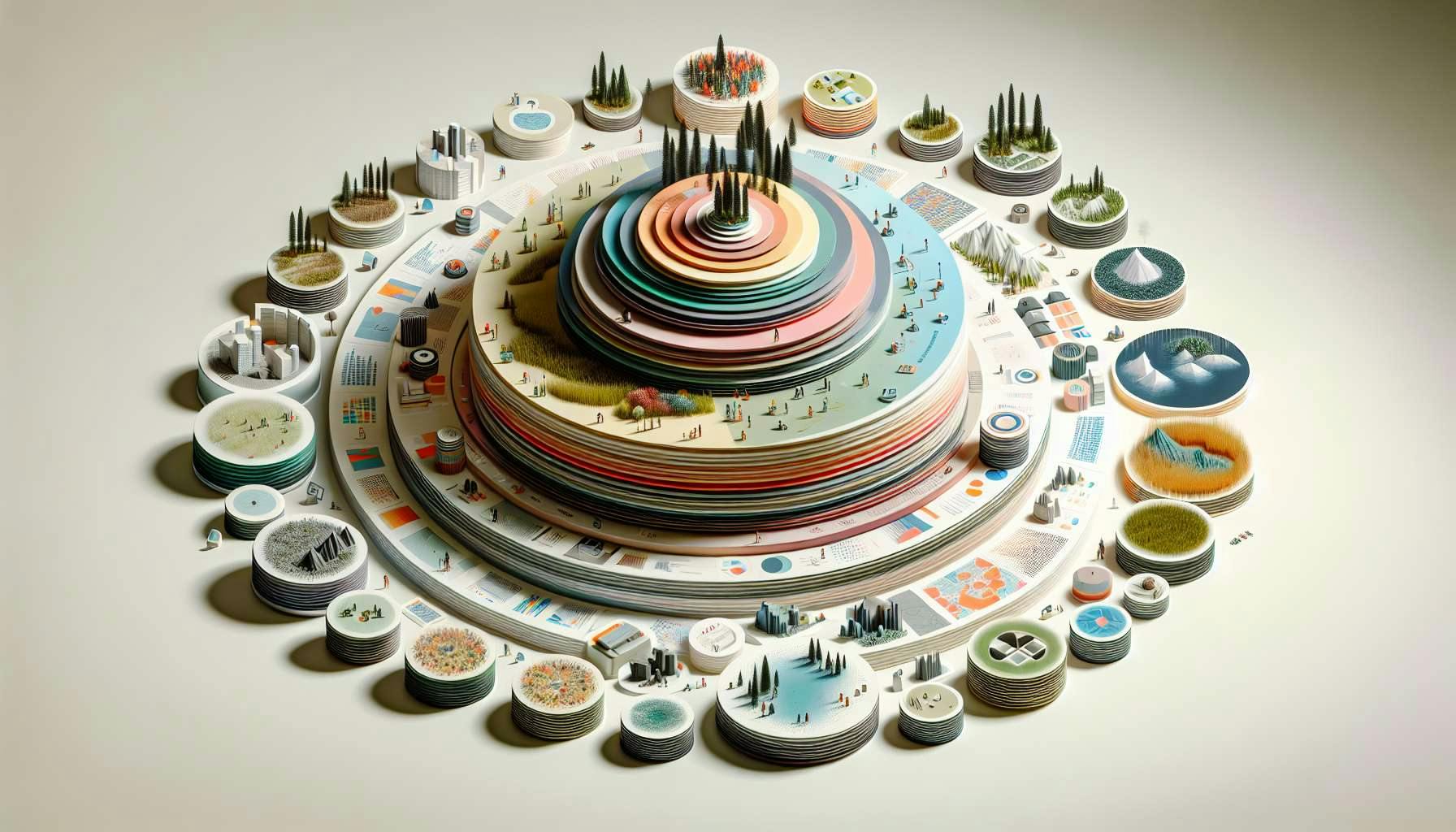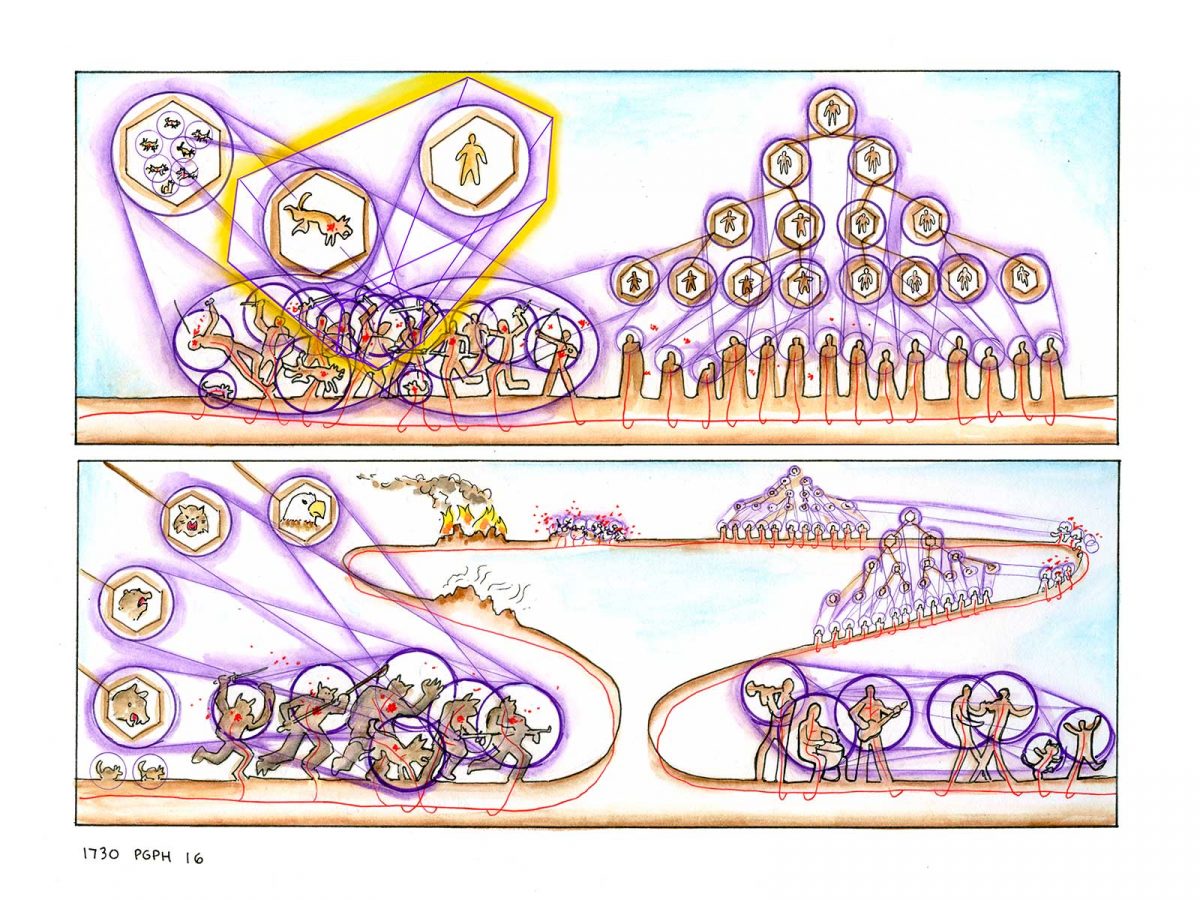
I will need to be captivated by the explanation, not bored or confused. I will need to get the feeling that I now understand the main applicable ideas. And the application should be in a falsifiable scientific domain, not just in philosophy.
A book is preferable, but a good article, podcast or youtube might count if I'm very enthusiastic and enlightened.
This is all very subjective.
Buddies Without Organs podcast is probably not going to get you much closer to where you seem to be going, but it's worth a listen anyway. https://youtu.be/uLvduvxwcaM?si=1JYN0CHxL_OzeRU-
This podcast seems to be pretty good, I listened to a bit and it definitely gives examples: https://open.spotify.com/episode/7acP2IeZXZ2Ds4Lcsb9jJf
I've looked at several applications of Deleuze Guattari in domains that I know.
My theory now: I's all just rephrasing in a cool metaphorical language. Nothing is explained. No new insight is created. Nothing predictable is presented.
I think I'll give up on them:
Weird Mediation: Deleuze and Guattari on Toxic Internet Subcultures
The article looks at how the Internet can be imagined as a kind of psychedelic technology – in the sense of ‘manifesting’ new realities – through the lens of different ideas associated with Deleuze and Guattari. It considers a darker strain of their ideas and their reception, initially looking back to discussions from earlier cybertheory before taking as its case study the production of ‘microfascist’ subjectivities on the notorious website 4chan – arguably the point of origin of both the ‘alt-right’ and ‘QAnon’. To unpack this case study, the article develops the idea of ‘weird mediation’ (in dialogue with Gilbert Simondon), as well as considering some ‘shamanic’ aspects from Deleuze and Guattari’s thought (in dialogue with Carlos Castenada), which together offer insights and warnings about the power of mind manifesting technologies.
Deleuze and the Digital: On the Materiality of Algorithmic Infrastructures
In his short and often quoted essay ‘Postscript on the Societies of Control’, Gilles Deleuze famously describes the structures of power in the dawning twenty-first century as driven by ‘machines of a third type, computers’, as novel and predominantly digital infrastructures. In fact, from a Deleuzian perspective the entire ecosystem of the digital transformation can be described as a larger shift in modes of production and the political economy. This essay proposes to read this ‘technological evolution’ as the power of algorithms and their material substance – digital infrastructures that entail a different mode of interaction between humans and technology.
Becoming-Mobile: the Philosophy of Technology of Deleuze and Guattari
The concept of machine exceeds the technological context, yet it can be still relevant to technologies, especially digital ones. The concept of becoming assists in better understanding co-shaping processes in which a technology and its users change in tandem. Becoming is analyzed as a set of five characteristics: [1] transduction, a change process in both the user and the technology; [2] rhizome, no starting or end point; [3] molecularity, small movement or change that can create a big difference; [4] partial simulation, creating a non-identical copy; and [5] anti-memory, forgetting the past.
11 Information and Resistance: Deleuze, the Virtual and Cybernetics
The Imaginary of Cyberspace - Cybernetics: Information, Control and Communication - Pierre Lévy: A ‘Nomad’ Planet - Communication, Information and Thought
The chapter explains that the critical impetus of their theory of the virtual lies in what is called the intelligence of the virtual in thought, and contends that what cybertheory does in its bastardisation of the concept is, in fact, to depoliticise it.
I've used ChatGPT to make an analysis of Deleuze Guattari. You can find it here:
Urban Adventure in Rotterdam: Deleuze Guattari research (uair01.blogspot.com)
My pet peeve stays up:
Are their ideas any better than the more concrete ideas like complexity theory, and network theory? These look more useful.
Aren't their ideas just cool metaphors, that sound good, but don't lead to better understanding?
